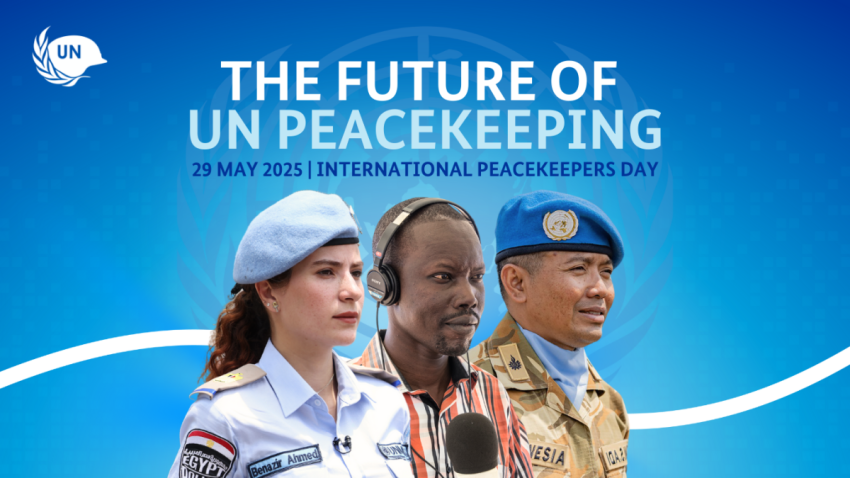Every year on 29 May, the United Nations marks the International Day of UN Peacekeepers.
Uniformed and civilian peacekeepers serve a vital role in maintaining and promoting peace in some of the world’s most challenging environments. This day serves to honour their dedication, bravery, and sacrifice.
UN peacekeeping dates back to 1948, when the first UN peace operation mission was established in the Middle East. Since then, more than two million men and women have served under the UN flag in more than 70 UN peacekeeping operations.
Some 68,000 military, police and civilian personnel from 119 countries currently serve in 11 peacekeeping operations where they protect civilians and support peace efforts.
This year’s theme, “The Future of Peacekeeping,” reflects the evolving nature of peace operations in a complex world.
The UN is actively working to modernize and adapt missions for the challenges of the future. This plan is detailed in the Pact for the Future adopted last year, and reaffirmed at the 2025 Peacekeeping Ministerial in Berlin.
“In trouble spots around the world, Blue Helmets can mean the difference between life and death,” Secretary-General António Guterres at the opening of the global gathering, but peacekeeping is only “as strong as Member States’ commitment to it.”
At United Nations Headquarters in New York, a series of events will commemorate the day, including a wreath-laying ceremony led by the Secretary-General to honour the over 4,400 peacekeepers who have lost their lives since 1948 - including 57 in the past year.
The Dag Hammarskjöld Medals will be awarded posthumously. Two distinguished officers will be recognized: Squadron Leader Sharon Mwinsote Syme of Ghana as the 2024 Military Gender Advocate of the Year, and Superintendent Zainab Gbla of Sierra Leone as the UN Woman Police Officer of the Year.
Digital assets and information for the International Day of UN Peacekeepers are on a Trello board.




